
Australian Stingless Bees Build Stunning Spiral Hives and No One's Quite Sure Why
The Australian Native Stingless Bee Hive is perfectly safe to keep in your backyard, verandah or patio as they don't sting or annoy people, though they can swarm so might be best to keep the hive away from your back door. During our hot Summers the bees don't need any morning sun. Temperature

Stingless Bee Intermediate Hive split Australian Native Bee
Small amounts of honey can be harvested from boxed hives of Stingless Bees in warm parts of Australia such as Queensland. (Remember that in colder areas such as Sydney, Stingless Bees may need all their supplies of honey to survive their dormant period in the winter.)

Stingless Bee Colony (ITAMA TRIGONA) Bamboo to Box Hive YouTube
Stingless Bees (Hymenoptera, Apoidea, Meliponini) from Gabon Chapter © 2018 1 Introduction Worldwide, bees play a fundamental role in the environment by facilitating the pollination of plant species in both natural ecosystems and agricultural crops, which has a direct impact on the yields of fruits and seeds (Nicholls and Altieri 2013 ).
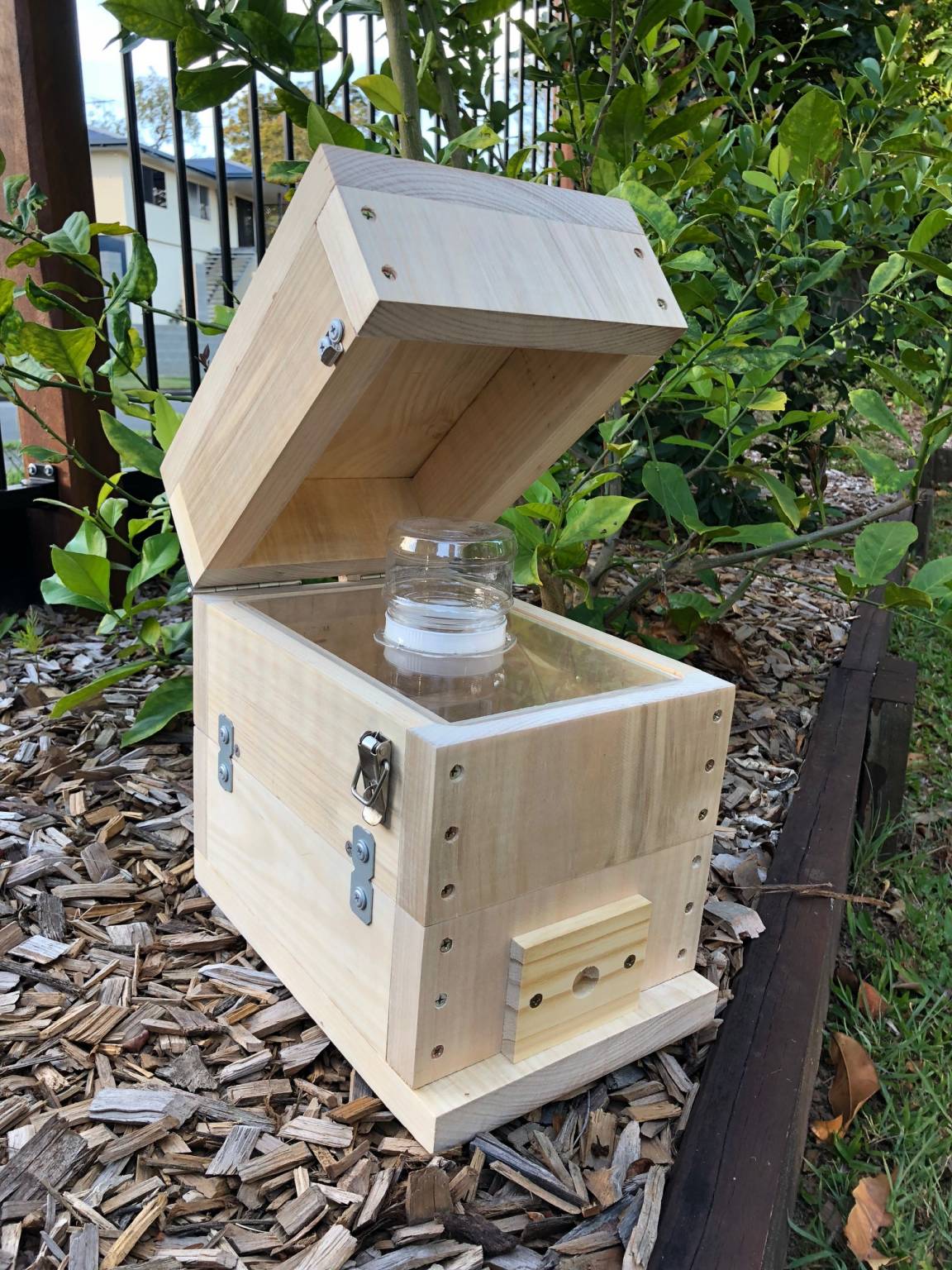
Bare Timber OATH BeeHive Stingless Native Bee Hive Perspex Honey Jar, Hinged Lid Design With
Stingless bees ( Tetragonula biros) are known in Tagalog as lukot or kiwot. They produce honey, propolis, and pollen. Their hives are reportedly low-cost and low-maintenance, so they are relatively easy to take care of and nurture.
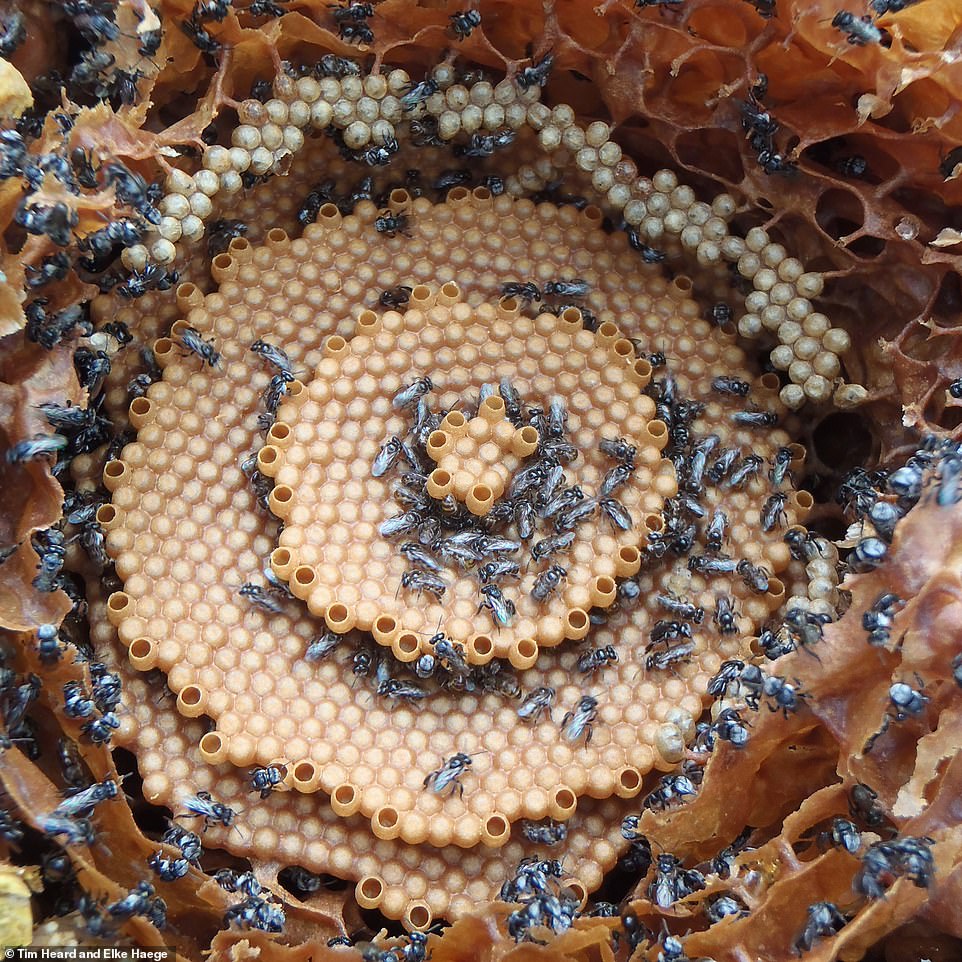
Spectacular images show the crystallike hives of stingless bees ReadSector
Q1. What are stingless bees? Australia has eleven species of small black stingless bees. They are about 4 mm long -- see the photo below of a stingless bee compared with a much larger commercial honeybee. Some species are black with white fur on their faces and sides. Other species are black with tiny yellow markings on their backs.

Design a Native Stingless Bee Hive Primary Schools Competition — Permaculture Northern Beaches
SMART NEWS New Research Scientists Crack the Mathematical Mystery of Stingless Bees' Spiral Honeycombs The waxy architectural wonders seem to grow like crystals Theresa Machemer Correspondent.
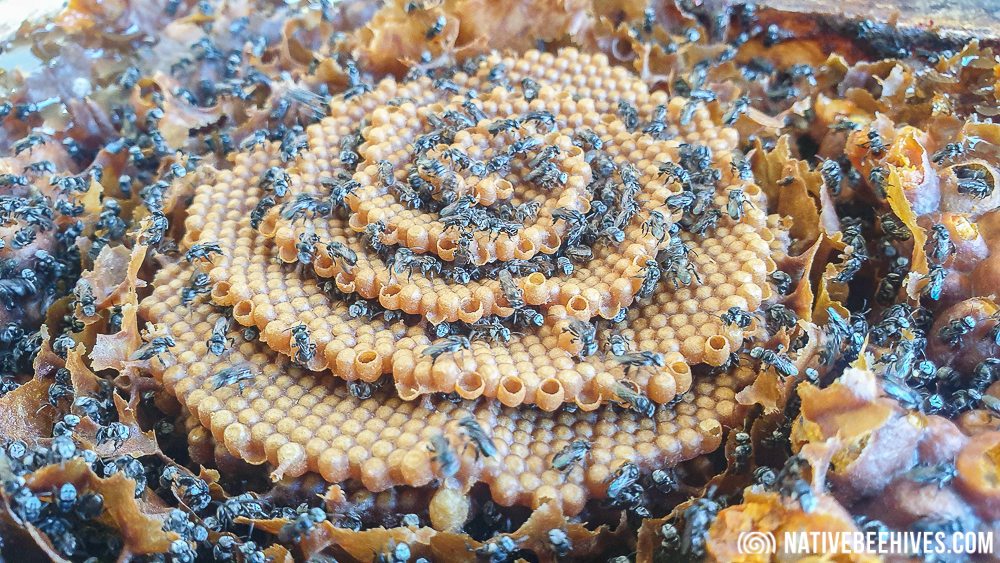
Native Stingless Bees Tetragonula carbonaria
Essential to stingless beekeeping is the selection of the area where the colonies will be maintained. It is important that the area includes diversity and abundance of nectar- and pollen-producing species that supply food for the colonies across the whole api-botanical cycle (Table 8.1).It is also important to select an area where potential risks, such as the frequent use of insecticides, are.
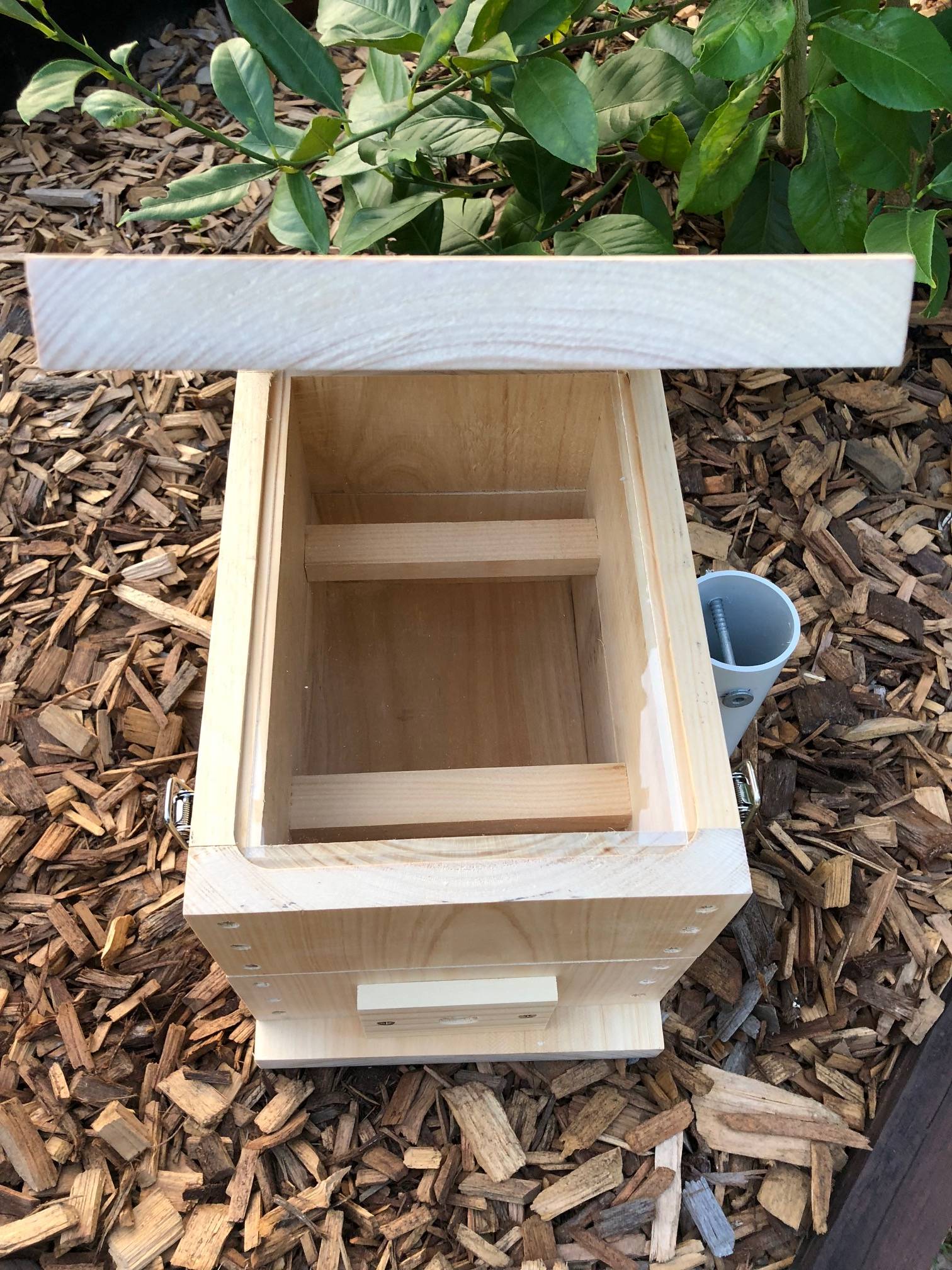
Bare Timber OATH BeeHive Stingless Native Bee Hive Perspex Viewing, Hinged Lid Design With
Stingless bees live in small colonies and produce just over three pounds of honey per year, while their stinging counterparts produce almost 20 times more.. Beekeeping was a charitable activity.
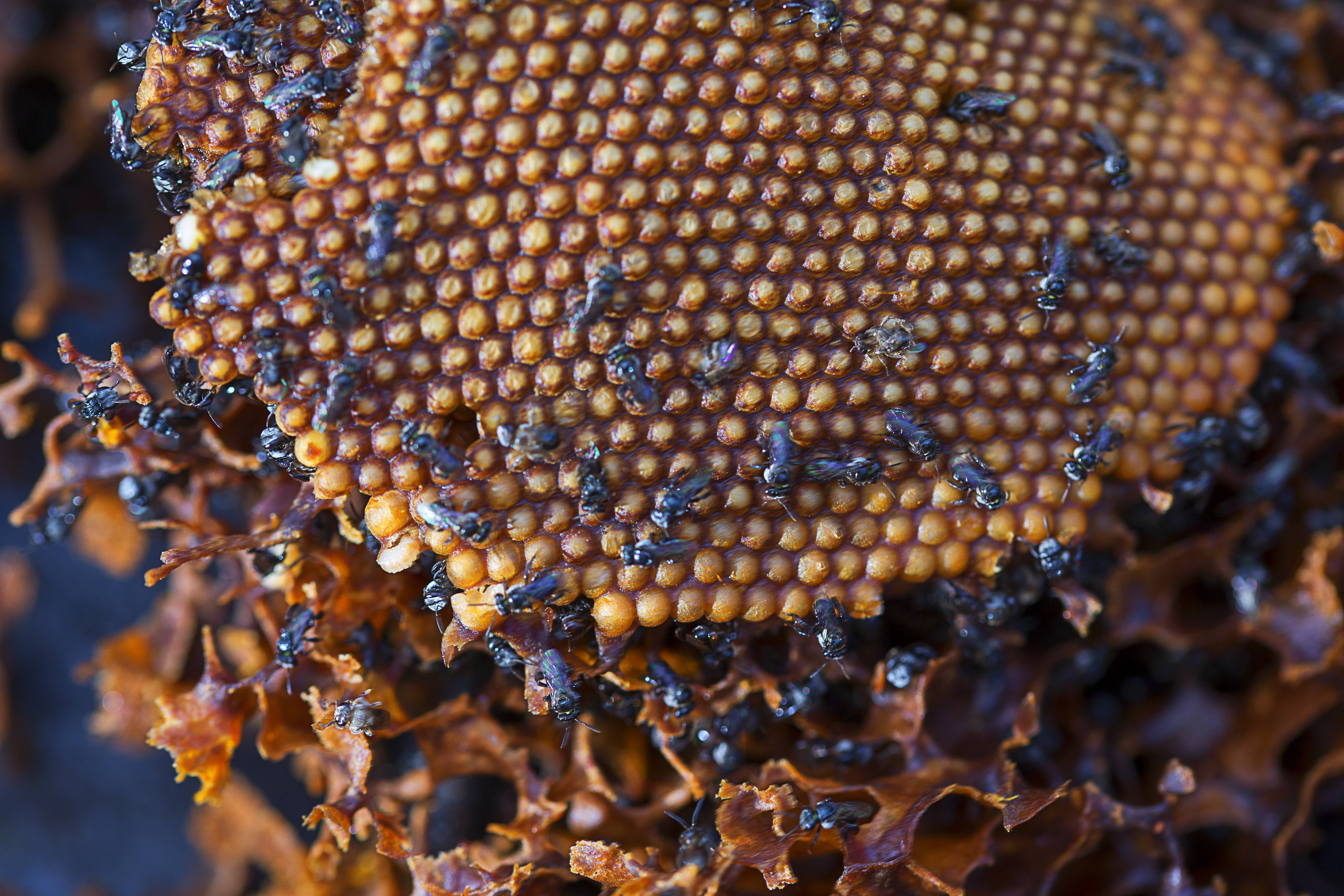
Bluebanded bee Mount Gravatt Environment Group
Stingless bees are closely related to common honeybees, carpenter bees, orchid bees, and bumblebees. They have strict hierarchies like any other apian species, but stingless bee castes are.
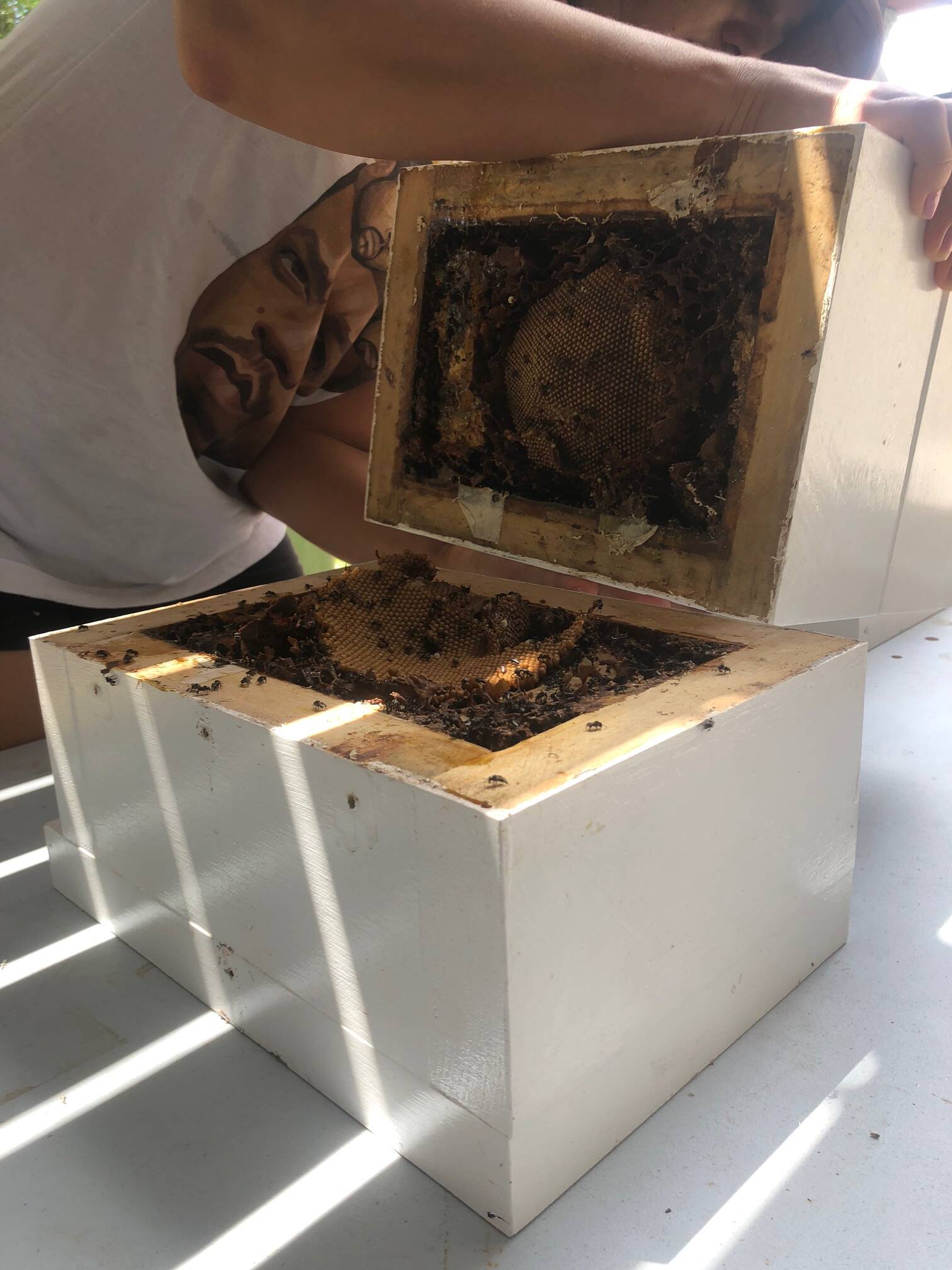
How To Guide For Splitting Stingless Bee Hives Australian Native
Stingless bees, sometimes called stingless honey bees or simply meliponines, are a large group of bees (about 550 described species), comprising the tribe Meliponini [1] [2] (or subtribe Meliponina according to other authors). [3]
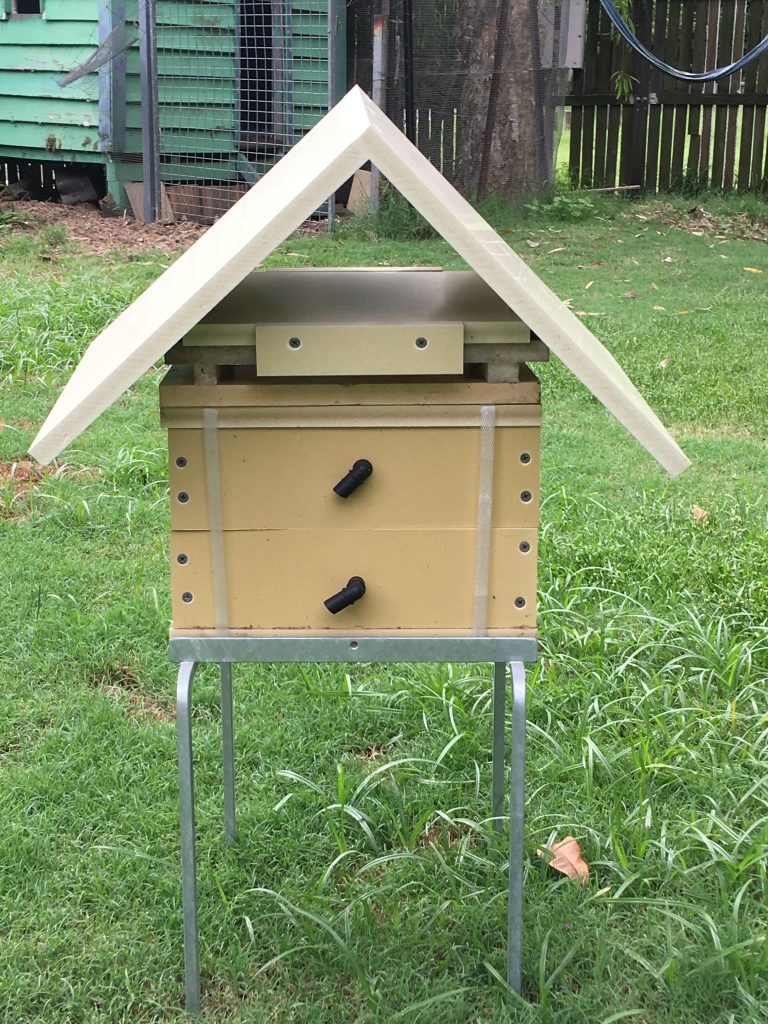
Stingless bee hive starter pack Sydney Stingless Bees
Stingless bees, also known as meliponine bees, surround a honey pot within their hives. Their honey is used to help wounds heal and to treat infections—and brings economic relief to keepers in.

Native Australian Stingless Bees Tetragonula carbonaria. Inside the hive stinglessbees
Stingless bees are also known as 'dammer/dammar bees' as they collect 'dammer', which is a resin from dipterocarp trees. The most important activity of stingless bees in terms of benefits to human.
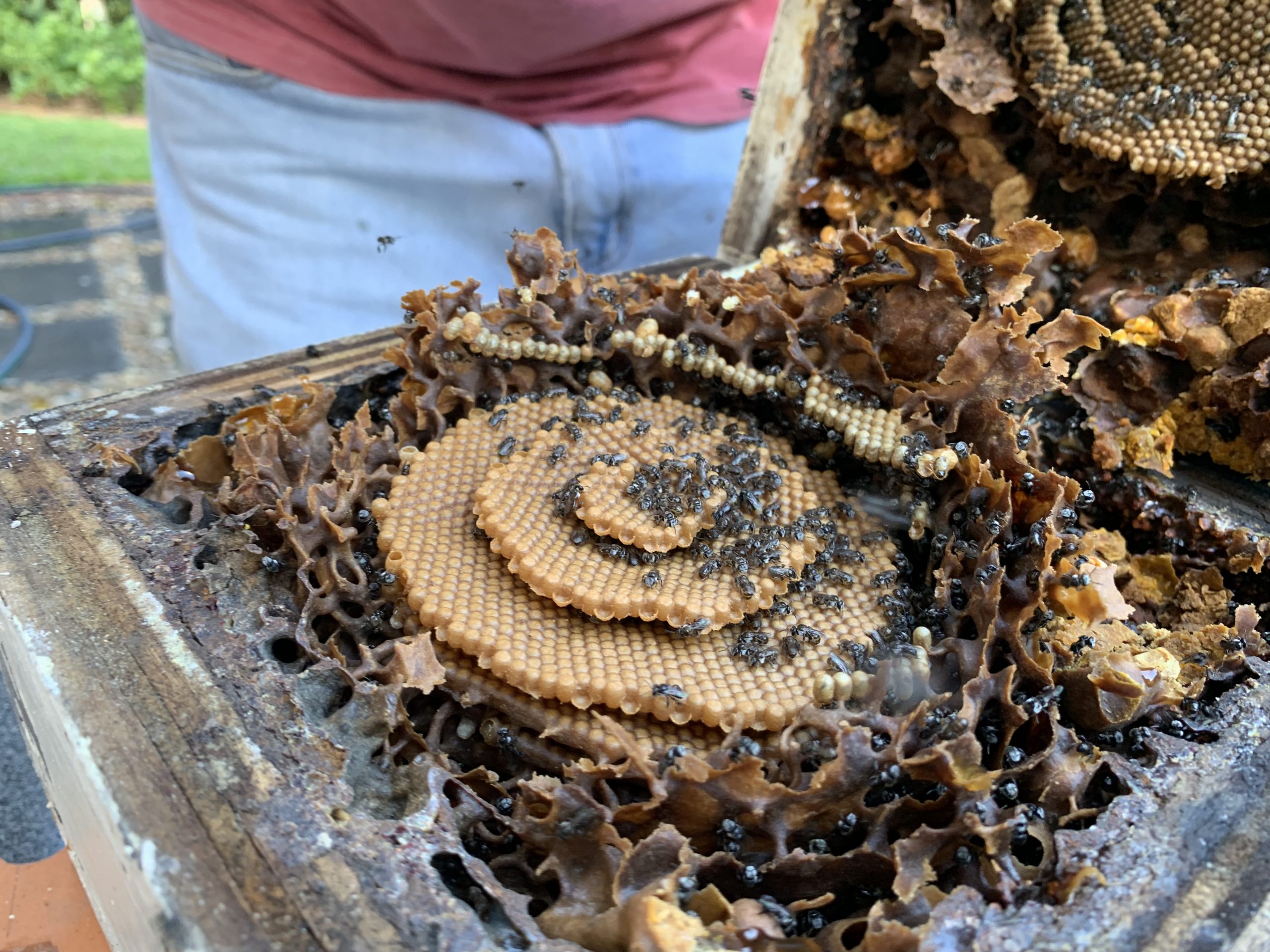
Services Brisbane Native Bee Rescue and Removal
Also known as meliponines, stingless bees or stingless honeybees are a large group of bees that belong to the tribe Meliponini. Belonging to the family Apidae, they are close relatives of most common honeybees, bumblebees, and carpenter bees.
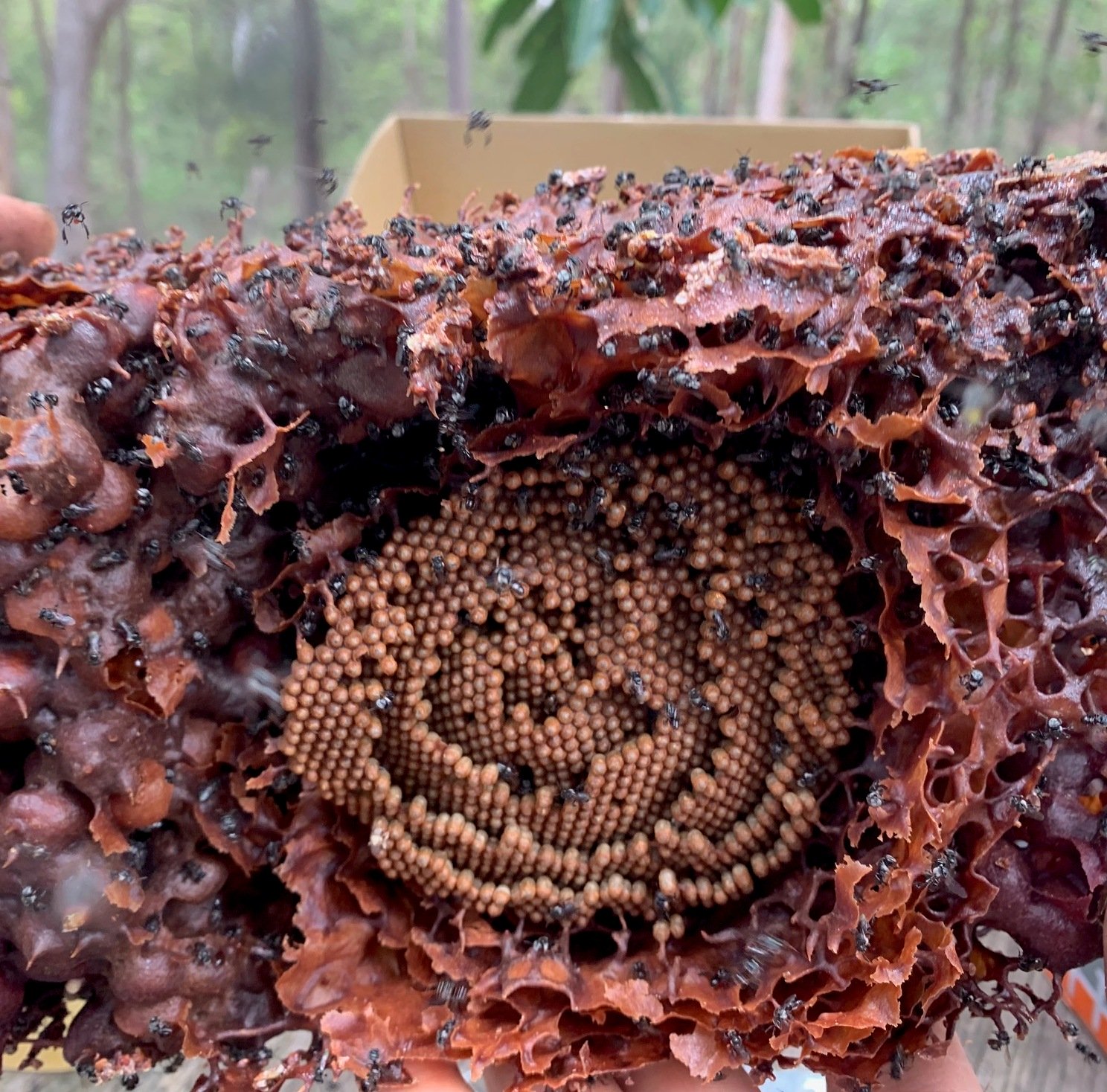
Propolis Stingless Australian Native Bees Wax ABeeC Hives
Stingless bees have a great value as main pollinators of wild flowering and cultivated plants, thus playing a fundamental role in the maintenance of biodiversity and food security in Latin America. Despite their importance, stingless bees face numerous threats causing alarming population declines. Moreover, stingless bees have a great cultural and traditional value, since most products from.
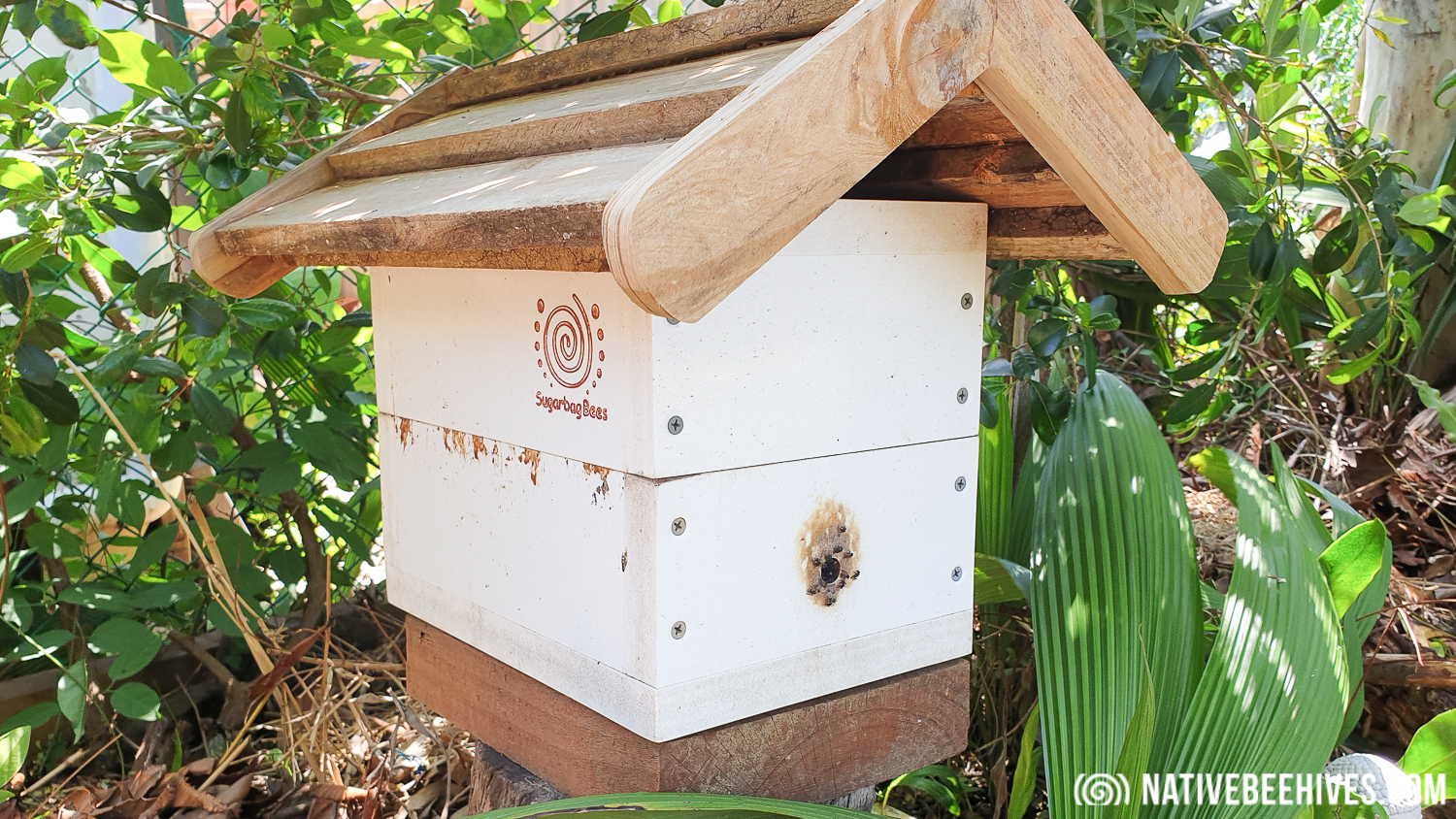
Native Stingless Bees Tetragonula carbonaria
Native Stingless Bees - Tetragonula carbonaria. Updated: October 2021 We have 11 described species of Stingless Bees in Australia and more that have been discovered but not yet named. This article covers one of the most popular species that people will keep in their back yards - Tetragonula carbonaria - common to Brisbane and Sydney. Photo.

Australian native stingless bee log hive macro 2 YouTube
Stingless bees are a large group of bees, comprising the tribe Meliponini (sometimes called stingless honey bees) in the family Apidae. They are closely related to the common honey bees, carpenter bees, orchid bees and bumblebees.